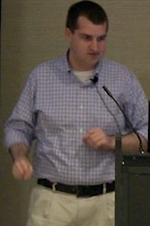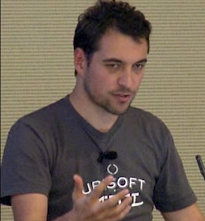The Visual C++ team is at CppCon 2015 by Eric Battalio
CppCon 2015 starts in two hours:
The Visual C++ team is at CppCon 2015
by Eric Battalio
From the article:
Steve Carroll and Ayman Shoukry cover what's new in VC++ early on Thursday morning. Ankit Asthana and Marc Gregoire will update us on the [Clang-based] support for cross-platform mobile development in VS 2015... James Radigan will talk about the work that we're doing to connect the Clang front end to the Microsoft optimizing back end [and] how we're working with the community to make this possible... Gabriel Dos Reis will talk about C++ Modules, a new design that helps with componentization, isolation from macros, scalable build, and support for modern semantics-aware developer tools. ...
Stephan T. Lavavej will discuss developments in <functional> from C++11 to C++17. We'll hear about contracts from Gabriel Dos Reis, and ... Artur Laksberg goes into the details of the Concurrency TS while Gor Nishanov describes the exciting future of concurrency in C++: coroutines, an abstraction that makes your code both simpler and execute faster. ...
You might have noticed a new repo that the Standard C++ Foundation published last week: the C++ Core Guidelines... Bjarne will talk about this in his keynote on Monday morning, and Herb Sutter will continue the discussion with his talk on Tuesday. And we've not only been working on the guidelines: we've implemented a library to support the guidelines and enforcement tools that automatically verify that your code follows them. Neil MacIntosh will discuss both of these projects in his back-to-back talks on Wednesday afternoon. The C++ Core Guidelines are a huge step forward for the language and the Visual C++ team is excited to be part of the group working on bringing them to reality!

 Have you registered for CppCon 2015 in September? Don’t delay –
Have you registered for CppCon 2015 in September? Don’t delay –  The title is confusing, the article is not and should be read!
The title is confusing, the article is not and should be read! Have you registered for CppCon 2015 in September? Don’t delay –
Have you registered for CppCon 2015 in September? Don’t delay –